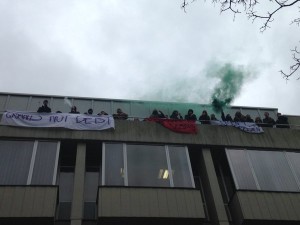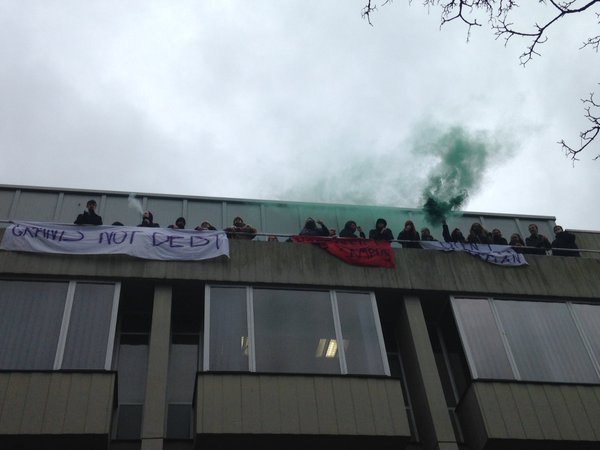The University of Sussex is considering changing its disciplinary rules to make it clear that students taking part in an occupation of campus buildings could be expelled.

The university this week stressed that the university supports and encourages peaceful student protest, but under draft regulations it would be made clear that student occupations would not be tolerated.
A number of student occupations have taken place on Falmer in recent years, most notably an eight-week squat of Bramber House in protest at the privatisation of some university services in 2013.
In February, two occupations were held, the first to raise awareness of sexual harassment in Sussex House which ended the same day, and the second two-day sit in at Bramber House in protest at the deportation of former Sussex student Luqman Onikosi.
Now, a review has led to a draft regulation which defines major misconduct as “conduct which causes a nuisance (whether or not causing damage) and is detrimental to the good order or reputation of the university; for example, the unauthorised occupation of a university building”.
President of the University of Sussex Student’s Union (USSU) Abe Baldry said: “This is, in our view, unnecessary and purposefully refers to (and by extension, limits) the right and capacity of the student body to engage in protest.
“Including such an inflammatory and unnecessary example, seemingly referring to events in the University’s recent past, could itself damage the reputation of the University and possibly incite such conduct in the student body once again.”
A spokesperson for the university said: “The university’s governing council commissioned a review of Sussex’s student disciplinary regulation and appointed a working group, led by an independent member of council, to undertake this task.
“The review was commissioned to ensure the university’s regulation better reflected the processes of the institution and to provide clear, transparent information to students about the working practices of the university.
“The draft regulation covers a wide range of matters from exam breaches through to allegations of assault. It does not take away from our students’ rights to freedom of speech and peaceful protest. These rights are clearly outlined in the university’s policy on freedom of speech and procedures; and remains unchanged.”









